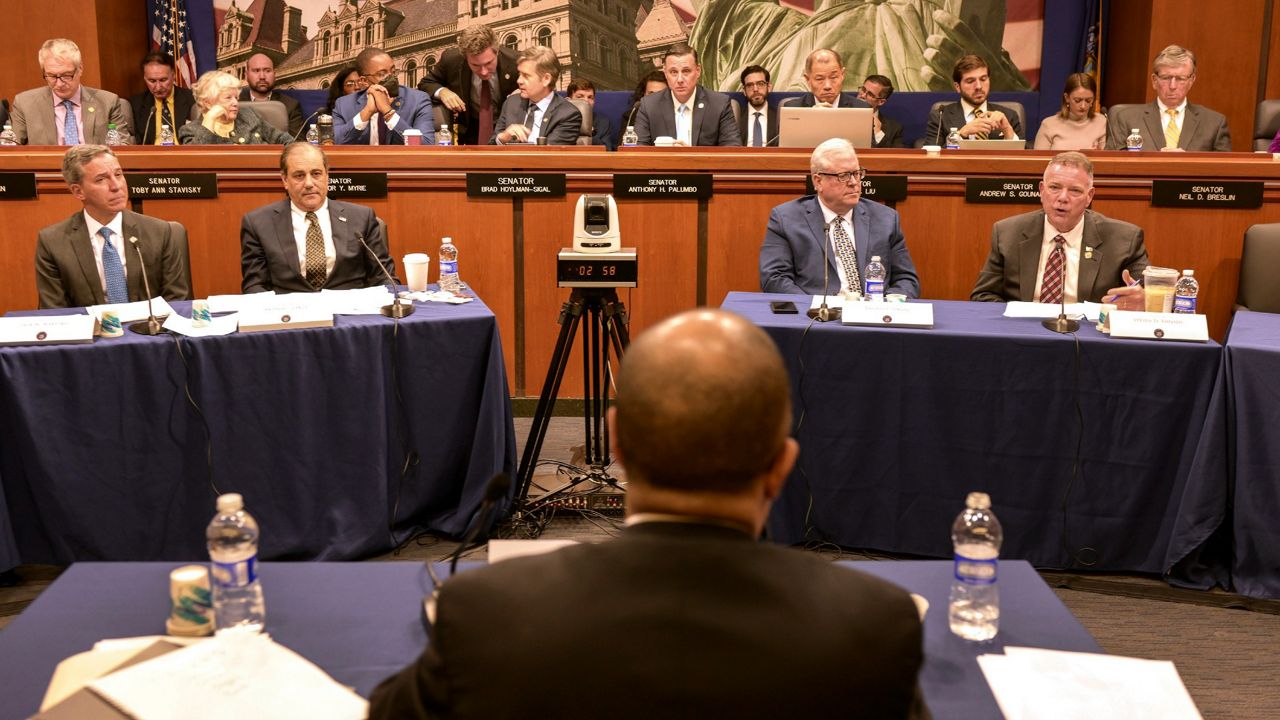Progressive advocates, lawmakers and labor unions scored a victory this week when the New York state Senate Judiciary Committee rejected Hector LaSalle's nomination to lead New York's top court.
It's yet another win in Albany for progressives, who have picked up influence at the state Capitol with Democratic supermajorities in the state Senate and Assembly.
People on both sides of the LaSalle battle agree the rejection by the Senate panel is another moment of change in New York state government and politics, with similar showdowns likely over the budget and policy questions like increasing the minimum wage, taxing the rich and funding health care.
At the very least, Democratic leaders in the state Senate who opposed LaSalle's nomination have signaled the days of ho-hum judicial nominations to the state Court of Appeals are a thing of the past.
“The Senate has now set a new standard in thorough, detailed hearings – an achievement for our democracy and a harbinger of future proceedings," Deputy Senate Majority Leader Mike Gianaris said.
For LaSalle supporters like former Chief Judge Jonathan Lippman, the committee's determination was, instead, a triumph of ideology over merit.
"This raises for the future the question of the legitimacy of the judiciary, the public's confidence in the judiciary and the whole process how people are elevated to the high court of our state," Lippman said Friday in a conference call with reporters.
Lippman is among a group of LaSalle supporters who have urged Hochul to file a lawsuit to force a vote on the floor of the state Senate, essentially bypassing the committee's result. The state Constitution outlines an "advice and consent" role for the Senate in judicial nominations, but LaSalle backers note there is no clear stipulation the committee must first approve.
Hochul has not ruled out a potential legal challenge, but Democrats in the Senate have argued the votes aren't there even if the nomination advances.
"This ongoing attack makes it clear that there are those that don't accept the Senate's role in this process, and will not be happy unless we simply act as a rubber stamp," Senate Majority Leader Andrea Stewart-Cousins said in a statement in reponse. "This is a dangerous infringement of the separation of powers. More and more people are waking up to the importance and impacts of the courts based on the events of the past year. This Senate takes our role seriously and we will continue to represent the best interest of the people."
LaSalle's confirmation was voted down based on his record following a five-hour testimony, she added.
Democratic lawmakers who have been critical of LaSalle have signaled they want to change the trajectory of New York's Court of Appeals, which they believe has tilted too far to the right on issues like criminal justice and labor rights.
But lines are also being drawn.
Senate Judiciary Committee Chairman Brad Hoylman-Sigal in a Capital Tonight interview on Thursday said he could not support a judge who has run on the Conservative Party line in a confirmation. Judges in many parts of the state run on multiple ballot lines under fusion voting.
“I’m not speaking for the conference,” Hoylman-Sigal said. “I can draw a bright line, but I can’t draw it for the conference by any means.”
The court last year found the process Democrats in the Legislature used to draw their own district boundaries was unconstitutional, sending the map-making to a special master.
A fight over court nominations in New York has been building for years, with progressive Democrats grumbling over the number of former prosecutors nominated to the bench. At the same time, successful efforts by Republicans to hold a conservative majority at the U.S. Supreme Court has also fueled a desire to focus on state-level courts in Democratic-led statehouses.
"With a far-right U.S. Supreme Court, and a New York Court of Appeals captured by conservative and corporate interests, New York’s next Chief Judge must be ready to stand up for the rights and dignity of all New Yorkers," said Sharon Cromwell, the deputy director of the Working Families Party.
Electorally, the progressive wing of the party has won Democratic primaries at the legislative level, adding to the swelling majorities in the state Senate and Assembly. Efforts to defeat a statewide gubernatorial candidate in 2014, 2018 and 2022 have fallen short, however.
"Nevertheless, the most progressive wing of the party felt they were entitled to have their chief judge pick, not the governor," said New York Democratic Committee Chairman Jay Jacobs, a Hochul ally. "In my view, it goes against what the Democratic voters voted for in the primary."



